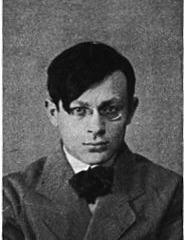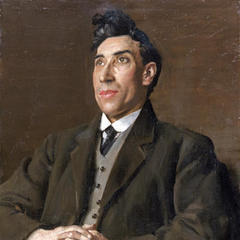John Milton Quotes - Page 26
'Paradise Lost' (1667) bk. 12, l. 581
"Lycidas" l. 70 (1638). A 1619 play thought to be written by John Fletcher, Sir John van Olden Barnavelt act 1, sc. 1, refers to "the desire of glory (That last infirmity of noble minds)." That play was lost and not rediscovered until 1883, so Milton's parallel words were coincidental.
'Paradise Lost' (1667) bk. 8, l. 172
John Milton, Alastair Fowler (2007). “Paradise Lost”, p.315, Pearson Education
'Paradise Lost' (1667) bk. 1, l. 261
Satan; so call him now, his former name Is heard no more in heaven.
'Paradise Lost' (1667) bk. 5, l. 658
'Paradise Lost' (1667) bk. 9, l. 249
And what is faith, love, virtue unassayed Alone, without exterior help sustained?
John Milton, Edward Young, Thomas Gray, James Beattie, William Collins (1836). “The Poetical Works of Milton, Young, Gray, Beattie, and Collins”, p.65
John Milton (1749). “Poetical works. A new ed. with notes of various authors by Thomas Newton. (With copper-plates.)”, p.249
Samson Agonistes Preface
And, re-assembling our afflicted powers, consult how we may henceforth most offend.
John Milton (1850). “Paradise Lost”, p.23
John Milton (1853). “The Paradise lost”, p.79
John Milton, James BUCHANAN (Grammarian.) (1773). “The First Six Books of Milton's Paradise Lost, Rendered Into Grammatical Construction ... With Notes ... To which are Prefixed Remarks on Ellipsis and Transposition ... By J. Buchanan”, p.45
John Milton (1851). “The Prose Works of John Milton: With a Biographical Introduction”, p.142
John Milton (2009). “The Complete Poetry and Essential Prose of John Milton”, p.526, Modern Library
He 's gone, and who knows how he may report Thy words by adding fuel to the flame?
John Milton, Henry John Todd (1852). “The Poetical Works of John Milton: With Notes of Various Authors; and with Some Account of the Life and Writings of Milton, Derived Principally from Original Documents in Her Majesty's State-paper Office”, p.217
John Milton, Henry John Todd (1826). “The poetical works of John Milton: With notes of various authors”, p.228
John Milton, Elijah Fenton, Samuel Johnson (1825). “The Poetical Works of John Milton”, p.97
Evil into the mind of god or man may come and go, so unapproved, and leave no spot or blame behind.
John Milton, James BUCHANAN (Grammarian.) (1773). “The First Six Books of Milton's Paradise Lost, Rendered Into Grammatical Construction ... With Notes ... To which are Prefixed Remarks on Ellipsis and Transposition ... By J. Buchanan”, p.321
John Milton (1853). “The Poetical Works of John Milton”, p.41







